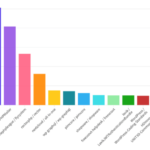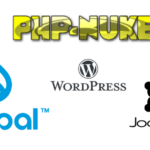
PHP team collaboration is like a well-tuned orchestra, creating a symphony of innovative solutions from diverse individual codes.
If you’ve ever wondered what happens behind the scenes in a bustling PHP team, you’re not alone. The words “PHP team collaboration” may stir up some skepticism. But guess what? We’re about to dispel these doubts and provide insights into the dynamic world of PHP software engineering.
Unpacking Team Collaboration: The Key to Success
Imagine a symphony orchestra. Each musician plays a different instrument, contributing unique sounds that come together to create a harmonious melody. This is, at its core, the essence of team collaboration.
Team Collaboration: A Definition
In its simplest form, team collaboration is the process of a group of people working together towards a common goal. But it’s not just about individuals completing their tasks. It’s about:
- Sharing knowledge and ideas
- Building upon each other’s work
- Communicating effectively
- Resolving conflicts in a constructive manner
- Utilizing each team member’s strengths for the benefit of the project
In a well-collaborating team, synergy is created – the total outcome is greater than the sum of what each individual could achieve on their own.
Why Team Collaboration Matters
Team collaboration can be the driving force behind business success. Here’s why:
- Enhanced creativity and innovation: When diverse minds come together, they bring unique perspectives and ideas. This diversity can spur creativity and lead to innovative solutions.
- Improved productivity: With clear communication and efficient division of tasks, teams can work faster and more effectively, boosting overall productivity.
- Increased employee satisfaction: When team members feel their contributions are valued and their voices are heard, job satisfaction and motivation can increase.
- Problem-solving: When a challenge arises, a collaborative team can pool their resources and expertise to find a solution more quickly.
Key Elements of Team Collaboration
Collaborative teams don’t just happen overnight. They’re built on several key elements:
- Communication: Clear, transparent communication is the backbone of successful collaboration.
- Trust: Team members must trust each other’s competence and reliability to collaborate effectively.
- Shared goals: Everyone should understand and align with the team’s common objectives.
- Mutual respect: Each team member’s ideas, skills, and contributions should be valued and respected.
- Collaborative tools: Tools such as Slack, Trello, or Microsoft Teams can streamline communication and project management, making collaboration more efficient.
Section sum up
Team collaboration is much more than a buzzword. It’s a powerful tool that can drive productivity, innovation, and success in any field. By nurturing communication, trust, shared goals, and mutual respect, we can create teams that can tackle any challenge and achieve remarkable results.
Why Is PHP Team Collaboration Crucial?

Before we delve into the specifics, it’s essential to appreciate why PHP team collaboration is important. Whether it’s an open-source project on GitHub or a commercial software endeavor, collaboration forms the backbone of PHP development.
It allows for faster problem-solving, sharing of best practices, and ultimately, the creation of robust, reliable software.
Addressing Skepticism about PHP Software Engineers
Now, you might have come across a few myths about PHP software engineers, like they only deal with outdated technology or lack versatility. Let’s put these concerns to rest.
Firstly, PHP isn’t outdated—it’s a tried-and-tested technology used by giants like Facebook and Wikipedia. It’s constantly evolving to cater to modern web development needs.
Secondly, PHP engineers are incredibly versatile. They handle everything from server-side logic to database management, embodying the full-stack philosophy. They’re also well-versed in PHP project management open source tools, which allow for seamless collaboration and efficient project execution.
Expectations from a PHP Software Engineer
As the cornerstone of a PHP team, a PHP software engineer must wear many hats. They’re not just coders but also problem solvers, strategists, and collaborators.
An effective PHP engineer should be able to:
- Write clean, efficient code
- Troubleshoot and debug applications
- Work seamlessly with other team members
- Adapt to project management systems like GitHub
- Contribute to open-source projects
When using tools such as the project management system in PHP GitHub, engineers can efficiently track progress, assign tasks, and manage code – all while collaborating with team members.
Key Tools: PHPCollab and Spack Tasks Management System

Now, let’s talk about two important tools that PHP software engineers often use – PHPCollab and Spack.
PHPCollab is an open-source project management and collaboration tool, enabling PHP teams to communicate, coordinate, and track their progress efficiently. It’s user-friendly and designed specifically for PHP development teams.
Spack, on the other hand, is a versatile tasks management system. It’s a popular choice among PHP teams for its seamless integration with the PHP ecosystem and its ability to streamline workflows and manage tasks effortlessly.
Boost Your Productivity: Mastering Team Collaboration Techniques
Regardless of the industry or the project at hand, the secret sauce to success often lies in effective team collaboration. “Alone we can do so little; together we can do so much,” as Helen Keller aptly said.
But the question that beckons is – How can we foster effective team collaboration? Let’s delve into some key techniques that can transform the way your team works.
Open and Honest Communication
This is the cornerstone of any successful team collaboration. Everyone should feel comfortable sharing ideas, concerns, and feedback. To foster open communication:
- Establish clear channels of communication: Whether it’s Slack for instant messaging, Zoom for meetings, or Trello for project management, ensure everyone knows how and where to share their thoughts.
- Promote a culture of feedback: Encourage team members to share constructive feedback regularly. This can help nip issues in the bud and promote continuous improvement.
Defined Roles and Responsibilities
A clear understanding of who does what is crucial for smooth team collaboration. Here’s how to achieve it:
- Clearly articulate roles: Everyone should know their responsibilities and how they contribute to the overall project.
- Avoid micromanaging: Empower your team members by entrusting them with tasks and giving them the autonomy to complete them in their way.
Foster a Collaborative Culture
Creating a collaborative culture is about more than just processes and tools. It’s about fostering an environment that values teamwork and shared success.
- Encourage brainstorming sessions: Regular brainstorming sessions can lead to new ideas and solutions, and also make everyone feel valued and involved.
- Celebrate successes as a team: Every milestone achieved, big or small, should be celebrated as a collective win.
Leverage Collaboration Tools
The right tools can make collaboration more efficient and enjoyable. Explore tools like:
- Project management tools: Tools like Asana, Monday.com, or PHPCollab can help manage tasks, track progress, and foster collaboration.
- Communication tools: Platforms like Slack or Microsoft Teams can facilitate real-time communication and keep everyone in the loop.
- Document sharing tools: Google Docs or Dropbox can make sharing and collaborating on documents a breeze.
Regular Check-ins and Updates
Keeping everyone in the loop ensures smooth collaboration and prevents misunderstandings. Implement regular team meetings for project updates, but also consider quick daily check-ins to maintain momentum.
Respect and Trust
Last but certainly not least, a collaborative team is built on a foundation of mutual respect and trust. Encourage team members to value each other’s perspectives and cultivate an atmosphere of trust by being reliable and honest.
Section sum up
So, there you have it – some key techniques to master team collaboration. Remember, the best teams are not those where members are exceptionally talented; they are those where members work exceptionally well together. Try out these techniques and watch your team’s productivity soar!
Sparking Synergy: Fresh Ideas for Team Collaboration
Team collaboration is the magic ingredient that can turn a group of individuals into a power-packed team. If you’re on the lookout for ways to fuel this synergy, you’ve come to the right place. Here are some fresh ideas to take your team collaboration to the next level.
Idea 1: Idea-Sharing Platforms
Create a virtual space (like a channel on Slack or a board on Trello) where team members can share ideas anytime. This ensures that every idea, big or small, gets a platform and can spark interesting discussions and innovations.
Idea 2: Regular Brainstorming Sessions
Host regular brainstorming sessions where team members can discuss and build upon each other’s ideas. This not only promotes creativity but also fosters a culture of collaboration and mutual respect.
Idea 3: Team Building Activities
Organize team-building activities that require collaboration to succeed. Whether it’s an online escape room, a group project, or a problem-solving challenge, such activities can strengthen bonds and promote effective teamwork.
Idea 4: Collaborative Project Management Tools
Leverage project management tools that facilitate collaboration. Platforms like Asana, Monday.com, or Jira enable task assignment, progress tracking, and communication, making it easier for teams to work together.
Idea 5: Cross-Departmental Projects
Initiate projects that require collaboration between different departments. This not only fosters team collaboration but also facilitates knowledge sharing and a better understanding of the organization as a whole.
Idea 6: Feedback and Recognition
Promote a culture of feedback and recognition. Encourage team members to share constructive feedback and recognize each other’s efforts. This can boost morale and promote a collaborative environment.
Idea 7: Virtual Coffee Breaks
In a remote work setting, create opportunities for casual interaction by hosting virtual coffee breaks or happy hours. These informal gatherings can strengthen relationships and promote open communication.
Idea 8: Collaborative Decision-Making
Include team members in decision-making processes. This will make them feel valued, foster a sense of ownership, and promote collaboration.
Section sum up
Remember, fostering a collaborative environment is a continuous process. It requires consistent effort, the right mindset, and a willingness to adapt and evolve. Try out these ideas and watch as your team grows stronger, more connected, and more collaborative.
Mastering Team Collaboration: Real-World Examples

When it comes to team collaboration, nothing beats real-world examples to bring the concept to life. Let’s delve into a few instances where teams have showcased outstanding collaboration to achieve remarkable results.
Example 1: NASA’s Mars Rover Mission
NASA’s Mars Rover Mission is a shining example of international team collaboration. Teams across different countries, with varying expertise, collaborated to design, build, and operate the rovers.
Despite geographical and time-zone challenges, they worked in harmony, enabling rovers like Spirit, Opportunity, and Perseverance to explore the Martian surface.
Example 2: The Development of Linux
The Linux operating system, initiated by Linus Torvalds, is a brilliant example of collaborative efforts in the world of software development. Developers from around the world collaborate to contribute code, fix bugs, and create a powerful and reliable open-source operating system.
This global collaboration has resulted in a product that rivals even the biggest commercial software.
Example 3: Google
Google’s suite of productivity apps – Google Docs, Sheets, and Slides – embody collaboration at its best. These tools allow multiple team members to work on a document simultaneously, make real-time edits, and leave comments. This has revolutionized team collaboration, especially for remote teams.
Example 4: Airbnb’s Rebranding
In 2014, Airbnb underwent a major rebranding. The process was highly collaborative, involving people from different teams – from design to marketing. The result was a new logo, ‘Bélo’, symbolizing belonging, and a refreshed brand identity that has resonated with millions globally.
Example 5: Wikipedia
Wikipedia, the free online encyclopedia, is another remarkable example of global collaboration. Thousands of volunteers worldwide write articles, fact-check, and edit content to create a comprehensive, reliable resource for all to use.
This team effort has resulted in an information hub available in hundreds of languages.
Section sum up
These examples clearly demonstrate that when individuals unite to work towards a common goal, extraordinary things can be achieved.
Collaboration can fuel innovation, improve problem-solving, and lead to greater success, whether it’s exploring distant planets, creating powerful software, or building a universally recognized brand.
Collaborative PHP: Scripts to Enhance Teamwork
Programming, like any other craft, benefits immensely from collaboration. Whether you’re working on a small feature or a comprehensive software project, efficient collaboration can often be the difference between success and failure.
In the PHP ecosystem, there are several scripts and tools that can assist your team collaboration efforts.
Let’s explore some of these resources.
1. Version Control Systems: Git
Version control is a critical part of software development collaboration. A popular choice among PHP developers is Git. With Git, multiple developers can work on the same project without stepping on each other’s toes.
GitHub, Bitbucket, and GitLab also offer web-based platforms to manage Git repositories, making it even more convenient for teams to collaborate.
2. PHPCollab
PHPCollab is an open-source project management and collaboration tool, perfect for teams working on PHP projects. It allows you to track project progress, manage tasks, and facilitate communication among team members. It’s a handy script for improving visibility and coordination in your team.
3. Project Management System in PHP (from GitHub)
There are numerous project management systems built in PHP available on GitHub. These tools provide features such as task assignment, progress tracking, and team collaboration. The open-source nature of these systems allows you to customize them according to your team’s needs.
4. Slack Notifications with PHP
Communication is key in collaboration. Many teams use Slack for communication, and with PHP, you can write scripts to send automatic notifications to Slack. For instance, you could send a message every time there’s a new Git commit, a new task is completed, or a new bug is reported.
5. SPAC Tasks Management System
SPAC is a PHP script available on CodeCanyon. It offers an elegant solution for task management. With features like project tracking, user management, and role assignments, it’s a great tool for teams looking to collaborate more efficiently on PHP projects.
6. Pair Programming
Pair programming is not a script but a collaborative approach where two developers work together at one workstation. One writes the code, while the other reviews each line of code as it’s written. This can be done remotely using tools like Visual Studio Code’s Live Share extension.
Section sum up
PHP offers plenty of opportunities for team collaboration. By leveraging these scripts and tools, you can foster a more collaborative environment and boost your team’s productivity. As always, remember that the best tool is the one that meets your team’s specific needs and fits seamlessly into your workflow.
Countering Counterarguments
It’s common to hear criticisms of PHP, like its lack of modern features or perceived inefficiency. However, PHP continues to evolve and thrive, providing a plethora of features and frameworks that rival any modern programming language.
Moreover, with the advent of PHP 7.x and 8.x, efficiency and speed are no longer concerns. PHP now offers a feature-rich, speedy, and versatile environment for web development.
Frequently Asked Questions (FAQs) about PHP Team Collaboration
1. FAQ: How can PHP developers manage merge conflicts in Git?
Code merges are common in collaborative PHP projects. Git has powerful features to handle these conflicts.
// Update your branch git pull origin main // If there's a merge conflict, Git will list the problematic files // Open these files and look for the following markers <<<<<<< HEAD // Your changes are here ======= // Changes from the remote branch are here >>>>>>> branch-name // Edit the file to resolve the conflict, then git add . git commit -m "Resolved merge conflict" git push origin your-branch2. FAQ: How can we use PHPUnit for collaborative testing in PHP?
PHPUnit is a robust framework for unit testing in PHP, making it easier for teams to maintain code quality.
// Install PHPUnit via Composer composer require --dev phpunit/phpunit ^9 // Create a test file class StackTest extends PHPUnit\Framework\TestCase { public function testPushAndPop() { $stack = []; $this->assertEquals(0, count($stack)); array_push($stack, 'foo'); $this->assertEquals('foo', $stack[count($stack)-1]); $this->assertEquals(1, count($stack)); $this->assertEquals('foo', array_pop($stack)); $this->assertEquals(0, count($stack)); } }3. FAQ: How can Docker enhance PHP team collaboration?
Docker ensures your PHP application runs consistently across different environments. It’s beneficial when collaborating.
# Use PHP 7.4 FPM
FROM php:7.4-fpm
# Install extensions
RUN docker-php-ext-install pdo_mysql
# Copy application code
COPY . /var/www/html/
4. FAQ: How can we use Xdebug for collaborative PHP debugging?
Xdebug enhances PHP’s debugging capabilities. It’s a boon when troubleshooting complex problems as a team.
// Configure Xdebug in php.ini
zend_extension=xdebug.so
xdebug.remote_enable=1
xdebug.remote_handler=dbgp
xdebug.remote_mode=req
xdebug.remote_host=127.0.0.1
xdebug.remote_port=9000
5. FAQ: How can Composer boost PHP team collaboration?
Composer handles PHP project dependencies, ensuring everyone uses the same library versions.
# Initialize Composer
composer init
# Require a package
composer require guzzlehttp/guzzle
6. FAQ: How can continuous integration (CI) improve PHP team collaboration?
CI platforms like Jenkins or GitHub Actions can automatically build, test, and deploy PHP applications, ensuring consistent code quality.
# .github/workflows/php.yml name: PHP Composer on: [push] jobs: build: runs-on: ubuntu-latest steps: - name: Checkout uses: actions/checkout@v2 - name: Validate composer.json and composer.lock run: composer validate - name: Install dependencies run: composer install --prefer-dist --no-progress - name: Run test suite run: ./vendor/bin/phpunit tests7. FAQ: How can a PHP IDE boost team collaboration?
PHP IDEs like PhpStorm or Visual Studio Code have features like code suggestions, formatting, debugging that can speed up development.
// An example of code suggestion in PhpStorm $str = "Hello, World!"; echo $str-> // PhpStorm will suggest string functions like `substr`, `explode`, etc.8. FAQ: How can coding standards improve PHP team collaboration?
Adopting a coding standard like PSR-12 can make PHP code more readable and maintainable for the whole team.
// An example of PSR-12 code namespace Vendor\Package; use Vendor\Package\SomeNamespace\ClassA; use Vendor\Package\SomeNamespace\ClassB as B; use Vendor\Package\AnotherNamespace\ClassC as C; class Foo extends Bar implements FooInterface { public function sampleFunction(int $a, int $b = null): array { if ($a === $b) { bar(); } elseif ($a > $b) { $foo->bar($arg1); } else { BazClass::bar($arg2, $arg3); } } final public static function bar(): void { // method body } }Remember, every team has different needs. The tools and tips mentioned here are quite flexible and can be adapted to meet your specific requirements. Collaborative PHP development is all about constant learning and adjustment to continually improve as a team.
Summing It Up
So, PHP team collaboration isn’t as enigmatic as it seems. With versatile engineers and powerful tools like PHPCollab and Spack, PHP teams can effectively collaborate, manage projects, and produce high-quality web applications.
Feel intrigued? We encourage you to explore the world of PHP, delve into open-source PHP projects, or maybe even start your own PHP project. Remember, collaboration is key, and with PHP, the opportunities are endless!
Ashley is an esteemed technical author specializing in scientific computer science. With a distinguished background as a developer and team manager at Deloit and Cognizant Group, they have showcased exceptional leadership skills and technical expertise in delivering successful projects.
As a technical author, Ashley remains committed to staying at the forefront of emerging technologies and driving innovation in scientific computer science. Their expertise in PHP web development, coupled with their experience as a developer and team manager, positions them as a valuable resource for professionals seeking guidance and best practices. With each publication, Ashley strives to empower readers, inspire creativity, and propel the field of scientific computer science forward.







